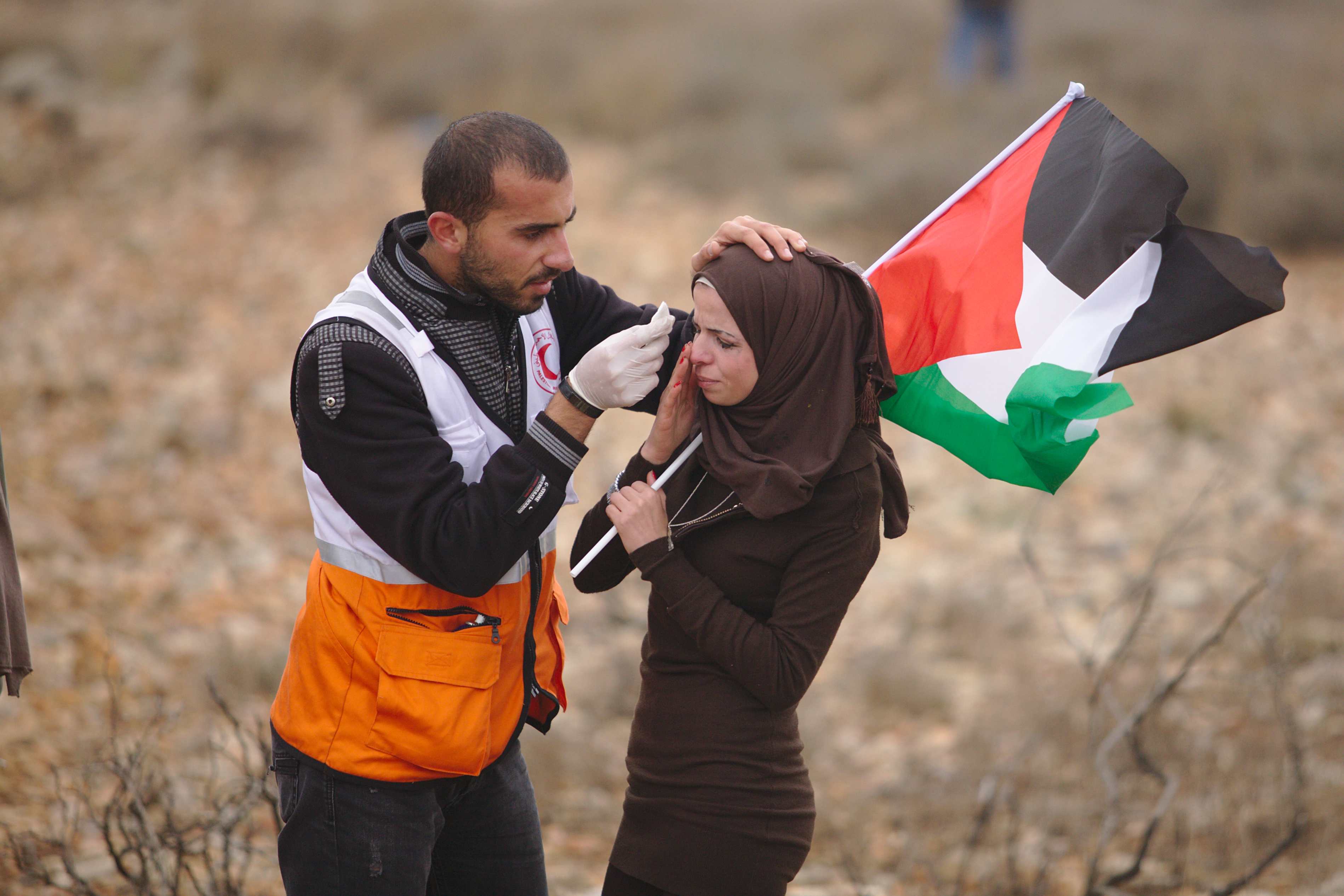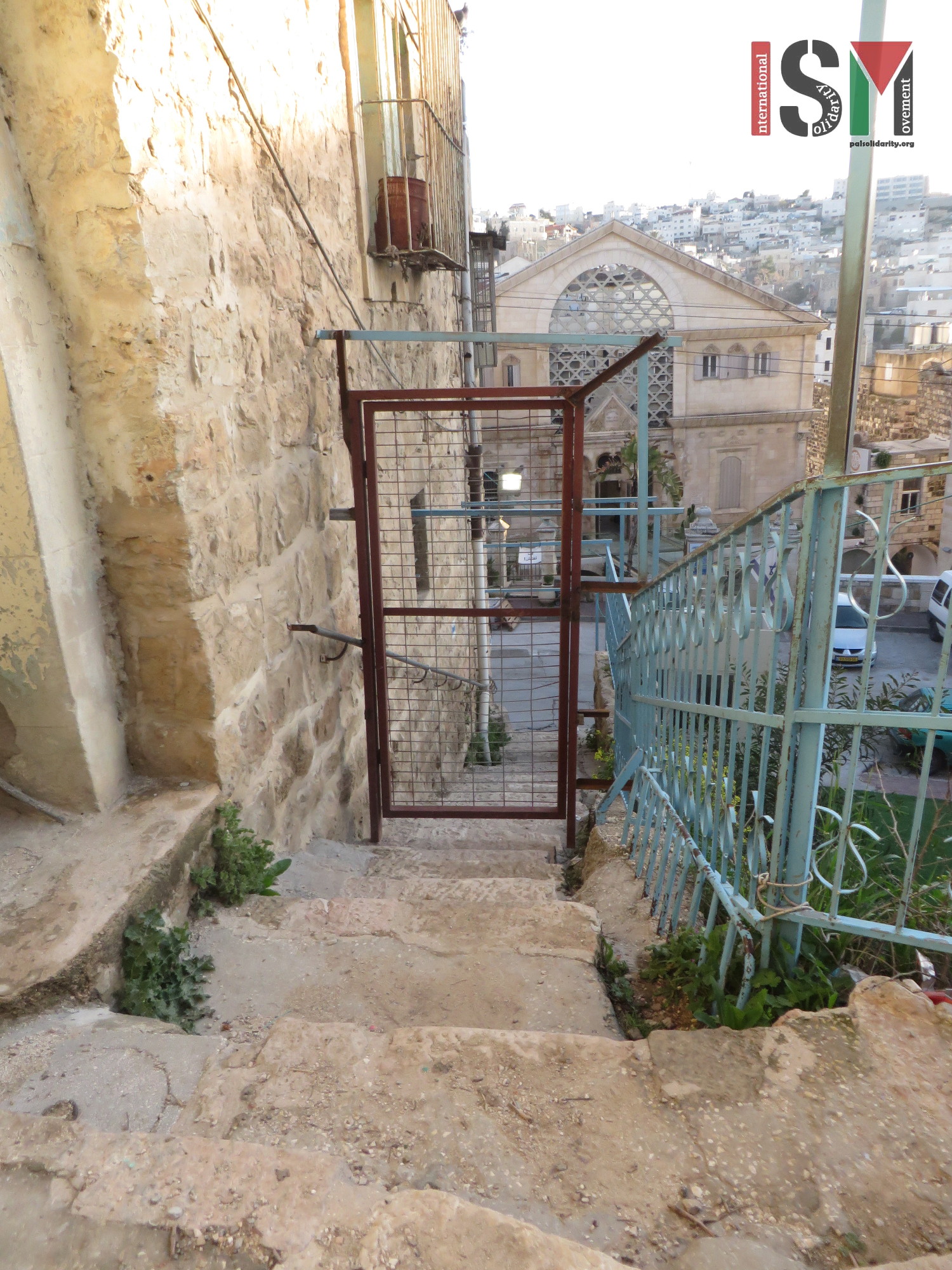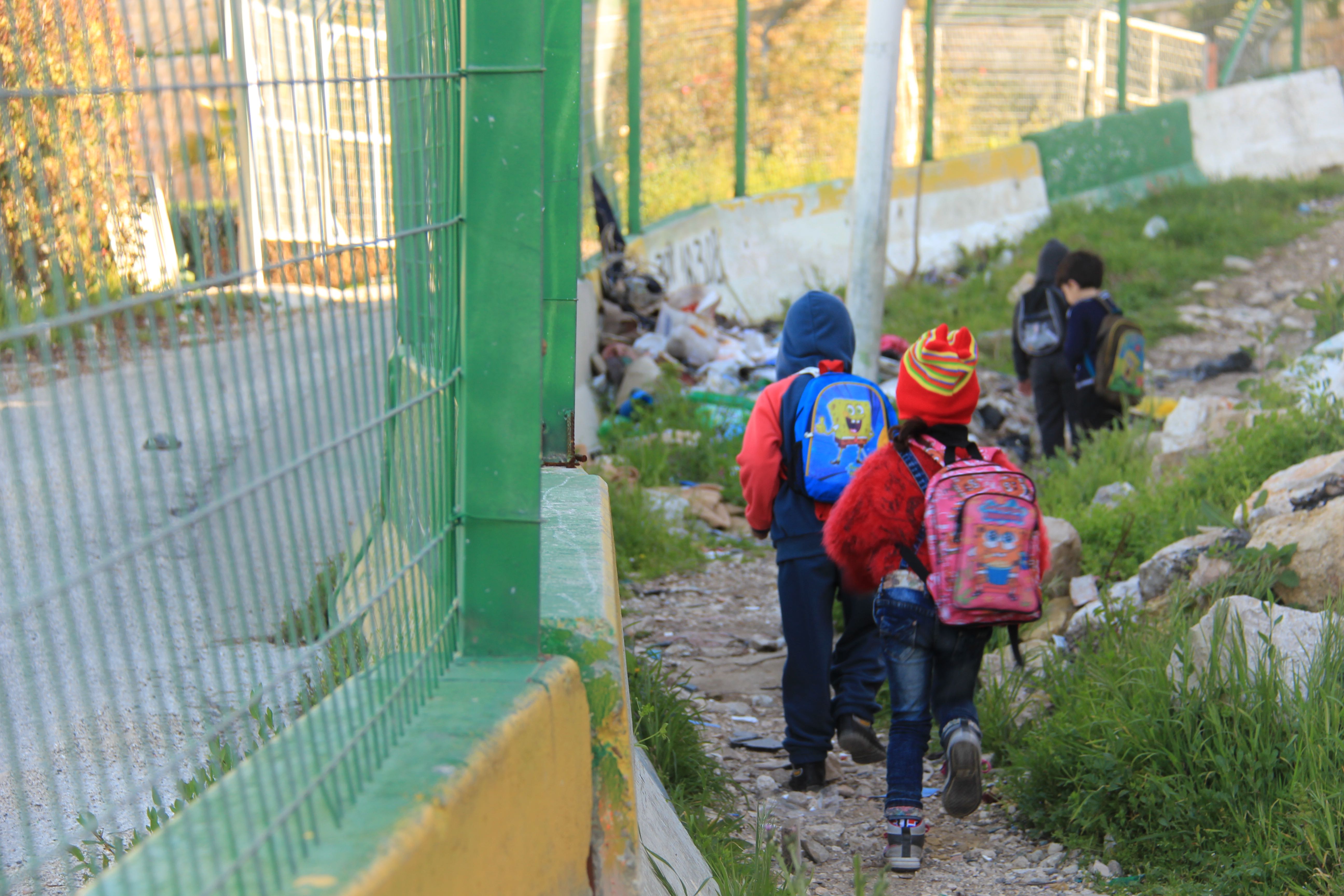-
The demonstrators of Nabi Saleh face new dangers from Israel
6th March 2016 | International Solidarity Movement, al-Khalil team | Nabi Saleh, occupied Palestine The residents of Nabi Saleh have been holding weekly demonstrations since 2009 in protest of the zionist regimes illegal occupation of the village’s land along with the takeover of the village’s spring located near the illegal Israeli settlement of Halamish. The Israeli authorities […]
-
Ethnic cleansing of Shuhada Street in occupied al-Khalil (Hebron)
6th March 2016 | International Solidarity Movement, al-Khalil team | Hebron, occupied Palestine Since the 1994 Ibrahimi Mosque Massacre, the majority of Shuhada Street – once the thriving Palestinian market and main thoroughfare connecting north and south al-Khalil (Hebron) – has been closed to Palestinians. They are completely barred from accessing it, except for a […]
-
‘It is my job to scare Palestinian children’ – Israeli forces justify intimidation of kindergarten children
6th March 2016 | International Solidarity Movement, al-Khalil team | Hebron, occupied Palestine Kindergarten-children in occupied al-Khalil (Hebron) often face harassment and intimidation by Israeli forces on their way to kindergarten. Listen to this audio recording of a discussion between an international volunteer and the soldiers about why the soldiers ‘have to’ scare the kindergarten-children […]
Action Alert An Nabi Saleh Apartheid Wall Arrests BDS Bethlehem Bil'in Cast Lead Demonstration Denial of Entry Ethnic Cleansing Farmers Gaza Global Actions Hebron House Demolition International law Israeli Army Jerusalem Live Ammunition Nablus Ni'lin Prisoner Ramallah Rubber-coated steel bullets Settlement Settlers Settler violence Tear-Gas Canister Video



